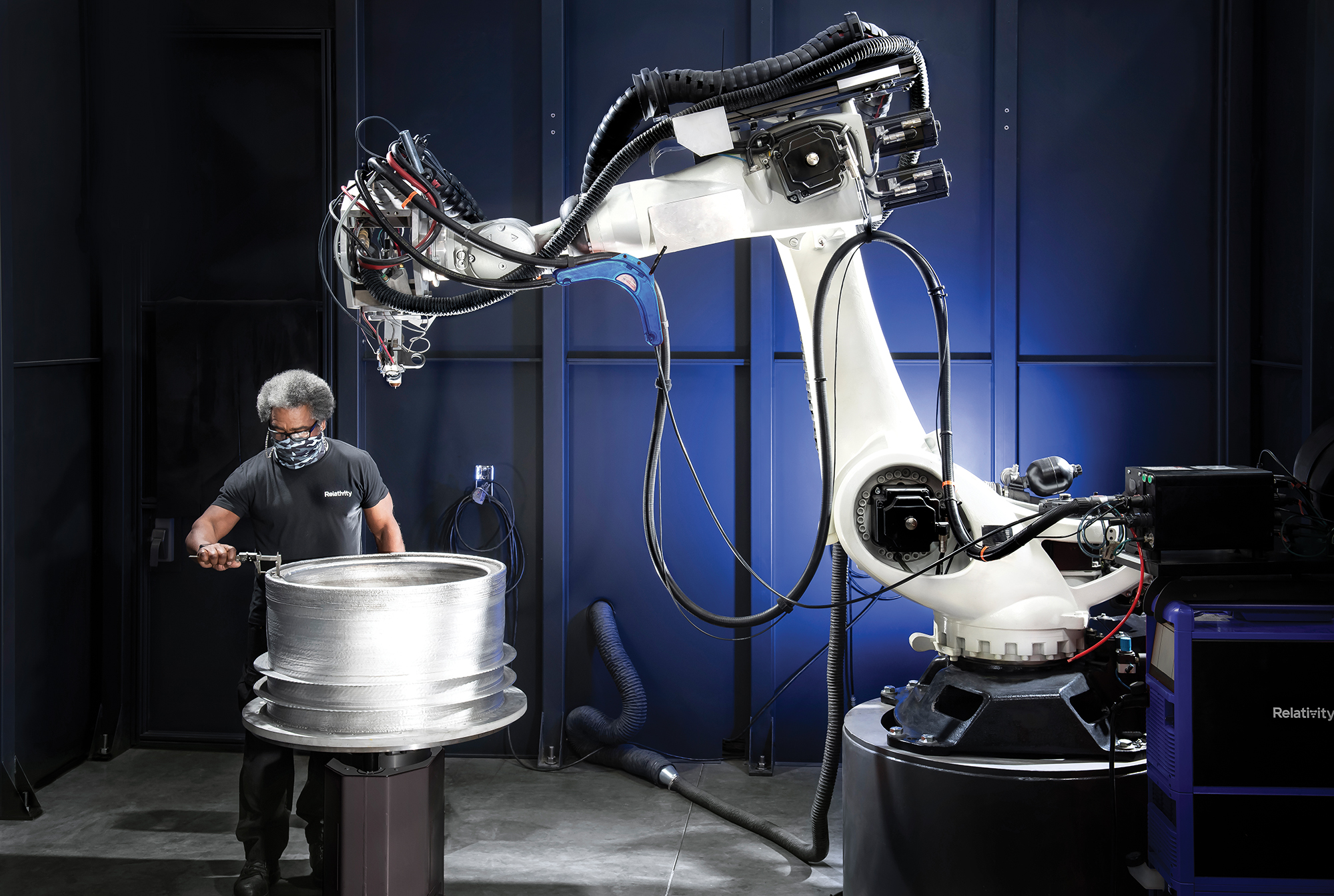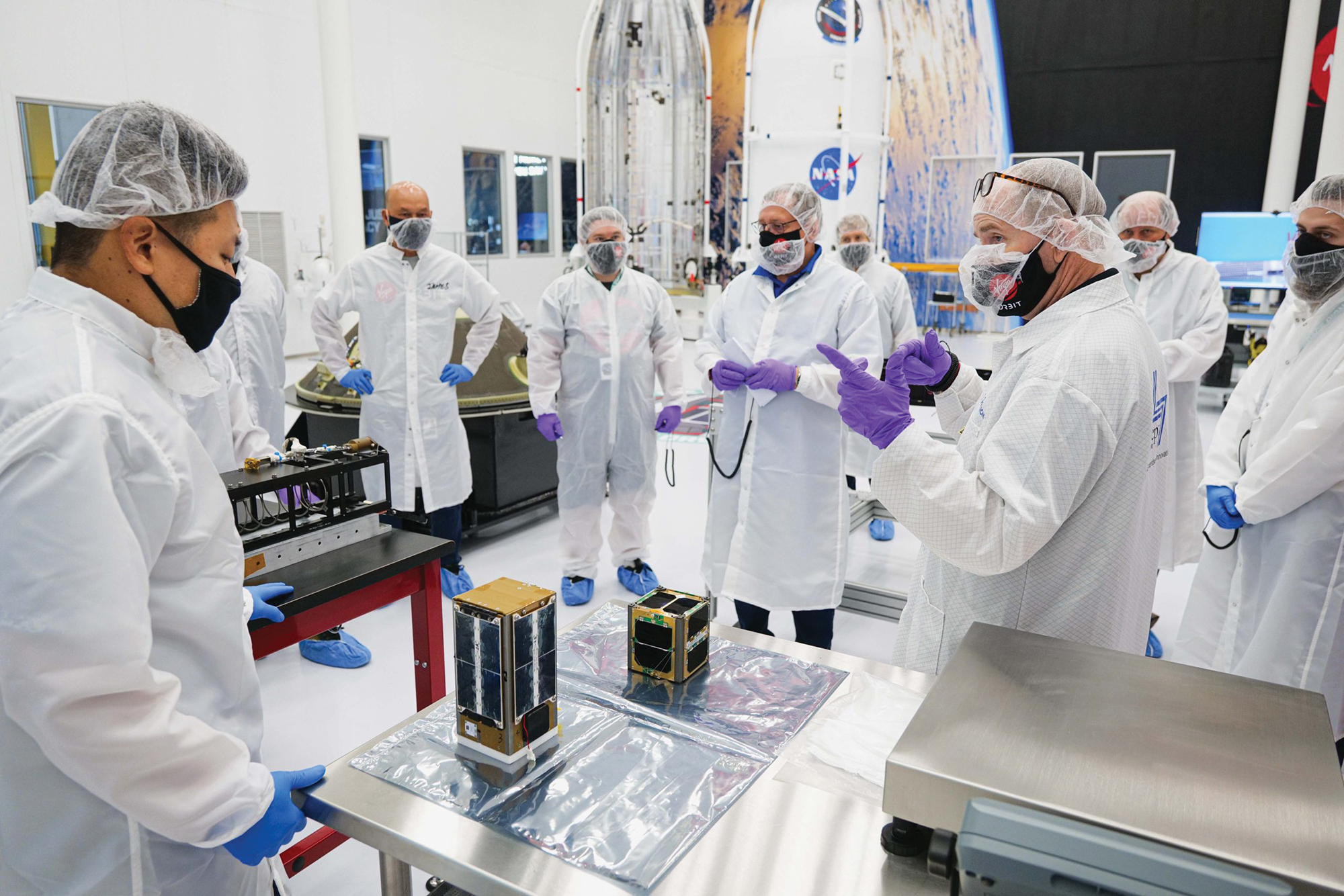
As Long Beach’s space economy continues to grow, city leaders continue to boast about the industry’s “high-paying” jobs. After all, the sector includes many skilled positions from engineering to manufacturing to robotics to IT.
But who is holding down most of these jobs?
According to gender and racial demographic data provided by two of the city’s major space companies, men make up the vast majority of employees. Virgin Orbit and Rocket Lab report that 83% and 80% of employees, respectively, identify as male.
“Women are typically under-represented in engineering and STEM sectors, but we’re working to change that,” Rocket Lab spokeswoman Murielle Baker said in an email. “At least half of our intake of summer interns identify as female.”
In addition to sponsorships of education and STEM nonprofits, school visits and Rocket Lab’s support of programs like the Brooke Owens Fellowship (paid internships and mentorships for undergraduate women and gender-minority students in aerospace), Baker said 75% of the company’s scholarship recipients identify as female.
Racial demographics skew heavily White at the two companies. Virgin Orbit reports that 48% of staff are White, while Rocket Lab sits at 49%. The remaining Virgin Orbit staff breaks down to 26% Hispanic/Latinx, 16% Asian, 4% Black, 1% American Indian/Alaskan Native and 1% Native Hawaiian/Other Pacific Islander. Rocket Lab follows a similar trend with 23% Hispanic/Latinx, 16% Asian, 2% Black, 1% American Indian/Alaskan Native and 1% Native Hawaiian/Other Pacific Islander.
Local gender demographics in the aerospace sector are in line with the industry at large—80% male and 20% female for companies with less than 10,000 employees, according to a 2019 workforce study by Aviation Week. In LA County, however, 45% of the labor force identifies as female.

Virgin Orbit and Rocket Lab’s racial demographics, meanwhile, are far more diverse than the industry standard. According to the Aviation Week study, 84% of the aerospace and defense workforce in the U.S. is White, followed by 5% Hispanic/Latinx, 6% Asian and 4% Black.
The Long Beach workforce doesn’t quite match county demographics, however. In LA County, 31% of the total labor force identifies as White, 44% Hispanic/Latinx, 14% Asian and 8% Black.
The city’s other two space-centric companies, Relativity Space and SpinLaunch, did not provide racial or gender breakdowns of their employees.
“While Relativity does not disclose the racial and gender demographics of our employees, we believe in investing in diversity and inclusion long-term,” Vice President of People Karin Kuo said in an email. “The value of different backgrounds, identities and perspectives will advance our mission and enable us to build the highest performing team possible.”
With more than 500 employees and plans to add another 150-200 by year’s end, Relativity has partnered with Pacific Gateway, the city’s workforce development agency, to support the placement of diverse talent within the company, Kuo said. The company also is building partnerships with Cal State Long Beach, Long Beach City College, UC Riverside as well as local minority- and Hispanic-serving institutions, Kuo added.
Relativity is set to grow its workforce to at least 1,100 by 2026 as required by the terms of a $30 million California Competes tax credit it was awarded earlier this year. The company announced a major expansion in the city in June, having signed a 16.5-year lease for a 1.1-million-square-foot hangar at the former Boeing C-17 site.
Virgin Orbit, which was the first company to join the city as part of its aerospace renaissance, has 600 employees with plans to expand its workforce. The company declined to share employment projections but stated it will remain a mid-sized company for the foreseeable future.

Rocket Lab, meanwhile, has north of 600 employees with more than 100 job listings as the firm continues to expand into spacecraft systems and components manufacturing, and research and development for its new eight-ton lift-capacity launch vehicle, Neutron.
With thousands of people employed by space companies in Long Beach and more on the way, the question becomes how many of these jobs are “high paying?”
A “living wage” in LA County is $40,248 for a single person with no children, according to MIT’s Glasmeier, Amy K. Living Wage Calculator. The median household income for LA County residents was $68,000 in 2019, according to U.S. Census Bureau data.
Defining “high-paying job” as an annual salary of $80,000 or more, the majority of employees at three of the city’s space companies fall under that category. A whopping 85% of Relativity employees make $80,000 or more per year, followed by Virgin Orbit at 64% (not including over time or differentials) and 62% at Rocket Lab.
SpinLaunch did not provide employment or salary information.
Engineers are crucial to the space sector and make up 51% of Virgin Orbit’s workforce. In 2020, the median salary for aerospace engineers was $118,610, according to the U.S. Bureau of Labor Statistics. About 66,400 aerospace engineers were employed in 2019, the bureau reports, with projections that the field will grow by 3%, or 1,900 jobs, by 2029.
